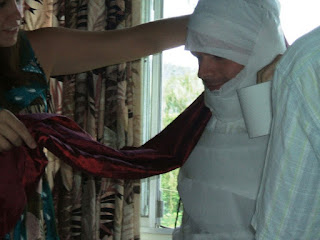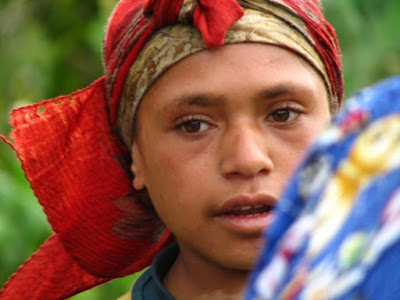It’s now Boxing Day evening. 1am. In 5 and a half hours I’ll get up, make my way to the nearest road and catch a public bus into town. From there I’ll search out the busses going down to Madang, a town on the coast. I’ll find one, hop in, and then it will drive around town for an hour or so trying to find more passengers. When it’s finally full we’ll start the 4 hour trip. I plan to rest at the Wycliffe guesthouse there for 5 or so days. I’ll read, eat and sleep. And that’s about it. Maybe go for a swim when it heats up at midday. It’ll probably be my last holiday here, as I leave in March. I’m taking Living in the Light of Eternity by Yohannan, and An Unexpected Light: travels in Afghanistan, by Jason Elliot. Yohannan’s book is good. I think Elliot is a bit of a pretentious writer, but I do learn about the country. I meant to pick up an easy-read novel to take but didn’t get round to it. Oh well. I’ve just finished Secret Believers by Brother Andrew. Excellent book. Highly recommended. If you’re at all interested in Islam, Muslims or just generally, in the growth of the church, or even if you’re just looking for a good read, get it. It’s very readable – kind of like a good novel, but telling of the stories of the struggles of ‘Muslim Background Believers.’
Christmas was good. I spent Christmas Eve with Alan and Ritva Brown, Bible translators here. They also had two daughters over from Europe, and a few other guests. I enjoyed that. Good food and good company. Alan’s a Brit and his wife, Ritva, is from Finland. I found out that Finnish Christmas food is very nice. Mmmmmmm.... :-) On Christmas day I was invited to someone’s house for breakfast, and then after breakfast got invites for lunch and dinner, so that worked out well. The singles here often do things together, eating together, just hanging out, playing games like Settlers, Risk and cards; thankfully Scrabble and Trivial Pursuit don’t rear their ugly heads too often. Oh, and I changed a tyre...haha...great Christmas Day activity, hey.
I hope your Christmas was good. I bought a whole stack of hand-painted postcard-like things to send out but, yep, you’ve guessed it, I didn’t get round to posting them. Sorry about that. I will send them and write again soon, but not for the next week while I’m away.
To all of you that in any way support me in this work, through finances, friendship, or prayer, thank you. This year has had its ups and downs. But I can say, without any hesitation, that it’s been a good one: one of learning, growing, and doing good work. I look forward to seeing what next year will bring.





















